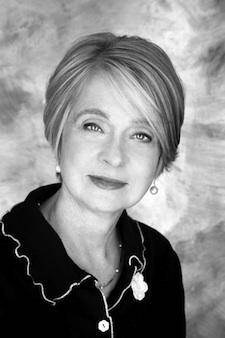My mother was a great fan of Henry James. She kept his novels and essays in her bookcase along with books about the author and Leon Edel’s masterly five-volume biography, which she read end to end. I’ve always liked James too, though unlike true devotees I don’t adore his late work. In August a stroke of last-minute luck seated me next to a well-known writer, the guest of honor at a luncheon sponsored by the local university, who told me James was her favorite novelist. I asked which of his novels she preferred. “Oh, the later ones,” she said in a tone of voice that made clear there could be no other choice.
I had read The Wings of the Dove and The Golden Bowl years ago, but found the last, in particular, a hard slog. James’s sentences unfurled sinuously, one subordinate clause after another. A single sentence stretched to a long paragraph or a page. One looked in vain for a period; one was submerged in a thought, marked by commas and semicolons, that spread like fine lace over the paper. Everything was so delicate, so nuanced, so complex. Abashed, I acknowledged that Portrait of a Lady was my favorite book by Henry James. It is, in fact, an exquisite novel and, though not so preciously wrought as The Wings of the Dove and The Golden Bowl, highlights in heartbreaking fashion the interplay between James’s idealistic American heroine, Isabel Archer, and the guileful Europeans who manipulate her to their advantage.
The words used for the title of that novel have come to mind often of late. My mother died over the summer, and my sisters and I were just about to put her apartment on the market when a month ago I broke my hip, causing me to relocate to her apartment rather than climb several times a day the narrow, circular stairs in my house. Surrounded by my mother’s furniture, books, pictures and possessions, I can’t help but reflect more about the woman she was.
I think about the other women she lived with as well. A 17th-century painting of an unknown woman hangs across from the armchair where I usually sit, and when my eye catches it, I wonder about her and what she was like. Nearby is another portrait of a lady, this one from a Tibetan thangka showing the demons of hell below her and the apparitions of heaven above her. The seated, graceful figure is oversize to the other figures in the textile, which seems true to life: We are always the central figure in the drama we live.
That seems particularly true of parents, who are invariably cast in a supporting role. It is often only after they die that they become people rather than parents in the eyes of their children. The end of the story makes you think more about the story: the arc of it, the characters in it, the themes and motifs. The finished story compels your attention in a way a work in progress does not.
My mother’s apartment reflects her interests and taste so perfectly that I will be sad when it is sold and her possessions dispersed. She loved beautiful things, and her home is full of them. She was a heroine from a Henry James novel, I think: intelligent, passionate, discriminating. She did not make Isabel Archer’s tragic mistake, but she was not so unlike her. She was both strong-willed and timid and sometimes one when she should have been the other. Like many of her generation, she was frustrated by the life women of her era were expected to lead. She had talents she didn’t use, talents she often deprecated.
When I read the book long ago, I remember thinking the characters in The Golden Bowl more subtle than people actually are in real life. Was that true, or the perception of youth? I would think that as James grew older the full stop of death would insert itself more in his prose. A sense of finality would intrude, putting an end to those endless series of clauses, commas and semicolons. But perhaps what those long, intricate sentences in his later novels reflect is how as we grow older, our sense of the world enlarges, grows more complicated, so that even endings become a beginning in which we reassess what we know about ourselves and those closest to us. The portrait does not change, yet we do who look at it. We realize that what we perceived in the past was only a little of all that was there.








